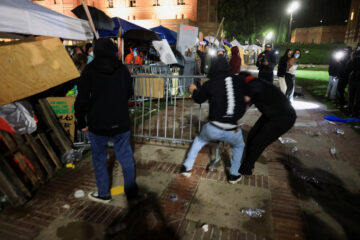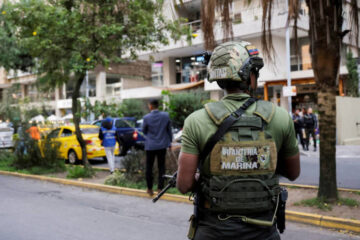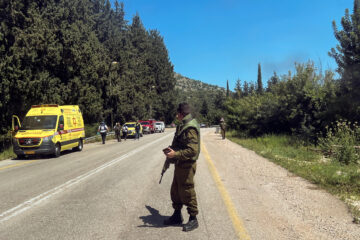Dozen killed in suicide attack against Mali rebels
An attack overnight in northern Mali by a pro-government armed group including suicide bombers killed a dozen people, security sources said Wednesday.
"GATIA fighters, accompanied by suicide bombers, attacked a rebel Tuareg and anti-government Arab position in the night from Tuesday to Wednesday near the town of Tabankort. There were a dozen deaths in total," a Western military source told AFP.
"The situation is very volatile, and it is essential to calm the situation," added the source.
A security source in MINUSMA — the United Nations peacekeeping mission in Mali — confirmed the deaths, adding that two fighters blew themselves up while a third was killed before he was able to detonate his explosives.
GATIA is the commonly-used name for the pro-government Imghad and Allies Tuareg Self-Defence Group.
Tabankort is part of a large swathe of desert which is the cradle of a Tuareg separatist movement that wants independence for the homeland it calls "Azawad", and from which several rebellions have been launched since the 1960s.
The town, northwest of the rebel stronghold of Kidal, is controlled by pro-government militias however which have clashed over the last month with armed rebels, leading to the deaths of fighters and civilians.
The UN was forced to withdraw a plan to create a "temporary security zone" in Tabankort after a huge protest in the northern city of Gao by pro-government youths who said it would undermine loyalist armed groups fighting the rebels.
Three people were killed Tuesday on a second day of demonstrations against the UN military mission.
Witnesses described a huge crowd of angry youths throwing stones and attempting to storm the MINUSMA headquarters in Gao to protest the UN taking control of a troubled area north of the city.
MINUSMA initially denied it was behind the deaths but later said it would investigate to establish its role in the violence.
The agreement between MINUSMA and three rebel groups — the High Council for the Unity of Azawad, the National Movement for the Liberation of Azawad and an anti-government wing of the Arab Movement of Azawad — would have placed Tabankort under exclusive control of UN troops.
MINUSMA helicopters destroyed a rebel vehicle near Tabankort in "self-defence" on January 20 following what it described as "direct fire with heavy weapons" on its peacekeepers.
Rebel groups said the action violated UN neutrality, adding that seven militants had been killed and 20 wounded.
The strikes sparked demonstrations hostile to MINUSMA in Kidal.
Algeria and the UN, which are leading mediation talks between the government and rebels, said the violence in Tabankort threatened to jeopardise the peace process.
Mali gained independence from France in 1960 but ethnic divisions run deep and the west African nation has been riven by conflict for much of the last half-century.
Islamists seized control of the north in 2012 on the back of an uprising by Tuareg separatists and imposed strict Sharia law and punishments, before being ousted 10 months later by a French military intervention.
MINUSMA took over security duties from African troops in July 2013, with a mission to ensure stability in the battle-scarred nation.
A 12,600-strong force, made up largely of Africans, replaced the AFISMA military mission, which has been supporting the French intervention.
The mission played a key role in presidential polls which saw Ibrahim Boubacar Keita rise to power in August 2013.
On top of the conflict between pro-and anti-government armed groups, Islamist extremists continue to carry out raids and attacks and French troops are still on patrol.
SOURCE: AFP
[do_widget_area inner_adsbar]










